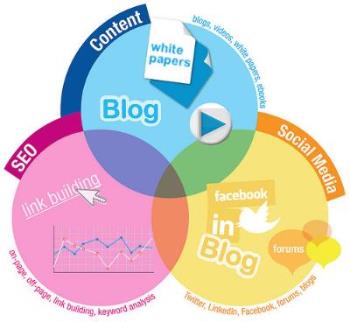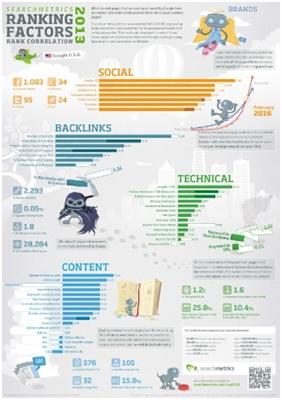A Brief History
For a surprisingly long time, it used to be that Search Engine Optimisation (SEO) was all about stuffing your content full of keywords and getting as many backlinks as you could from anywhere you could get them. This led to a lot of people gaming the system, and in many cases, low-quality search results.
It also meant that you could, just by spending money, hire someone to throw a bunch of keywords onto your pages, and then spam links to your website out into the wild, wild web, and see a measurable increase in search engine visits, and leads to your business. These kinds of tactics were usually called ‘blackhat’.
As search engines evolved, they devised ways to try to combat people gaming the system. Over time, blackhat tactics started becoming less effective, and now will even result in penalties – get caught link spamming now and Google may remove your site from its indexes entirely.
Now, in 2013….
The game has changed. Now, in 2013 and beyond, old tactics are becoming less relevant, and Social Media is playing an increasingly important role in how your blog content ranks in Search Engines.
Search Metrics do an annual correlation study of ranking factors for Google.com. This is perhaps the best study on search engine ranking factors that exists. It’s a correlative study, and correlation does not equal causation – so some caution is needed when you’re looking at the numbers below, however I believe there’s a number of important takeaways we can get from it.
What they found is that in 2013 – traditional SEO tactics (like keywords in the url, in the title, keyword density, and backlinks) are still relevant, but now are basically just required to play the game. Social media is starting to play a large part of the SEO algorithm.
Social signals continue to correlate very well with better rankings – SearchMetrics
They found that Google +1s, Tweets, Pinterest shares and all Facebook activity (shares, likes & comments) had a significant correlation to higher search engine placement. In fact the only non-social measure in the top 8 correlating measure was the number of backlinks. And it looks like social media signals will become increasingly important to SEO for the foreseeable future.
What Does This Mean?
What does this mean for a freelancer or small business owner? In one way it’s getting harder to rank well than it used to be. You can no longer just hire an SEO consultant, give them some time and money and expect to see real results without also learning how to generate great content, or hire writers who can.
Every Cloud Has A Silver Lining
The bad news has a silver lining however. Social media is making SEO more personal. Especially for freelancers and small business owners with limited marketing budgets: It’s a lot easier to get search engine rankings on your own now. The basics are pretty well established, and easy to learn. You can even have software (like Spokal) handle it for you. Generating content that people want to read, share, like and refer to their friends is the more challenging aspect of modern SEO. It’s no longer about black-magic SEO. Now it’s just about writing content that other people want to read. That sounds a little easier right?
So, what’s the magic recipe for search engine rankings?
1. Handle the basics. Things like your site’s speed, the length of your content, having appropriate anchor text, the position of the keyword in your blog post title, cross-linking between posts with relevant anchor text – all these things still matter. And they’re easy enough to do – Spokal has a real-time grader that tells you what you’re missing that updates as you type. There are free WordPress plugins like Yoast SEO that will also grade your content after you save it or publish it.
These things on their own aren’t enough anymore – they’re just the price of entry. Give yourself every advantage and optimize for these; they’re quick, easy wins.
2. Write something GOOD. Don’t try to force yourself to write something GREAT. Greatness comes with time. Start with good. Write something that’s either useful to someone (and share it with them!), entertaining, funny or engaging (or better yet, all of the above). Think about it from a random stranger’s perspective. They come to your site, knowing nothing about you. Your headline has to be interesting enough to grab their attention for 10-20 seconds. Your first few paragraphs have to be good enough to keep their attention for another minute or two. The rest of your content should keep them reading, and hopefully interested enough in what you have to say to read more, or better yet, drop their email address into your email newsletter sign up form (you do have one, right?)
3. Share. Share, share, share. Put it on G+, Twitter, your Facebook business page, then share from your business page to your personal. Ask others to like it, comment on it, share it too. Share it to all your social media accounts when you first publish a post. At a minimum, but you should also:
4. Schedule out repeat shares. You should be sharing content from a variety of sources on your social media properties, but in the mix, share some of your older blog posts too. How often you do this depends on the property. On twitter you probably want to push out a new blog post a few times over a few days. On Facebook and G+ you probably just want to do it once, and occasionally bring back an older post, perhaps one that’s relevant again.
5. Write with someone in mind. Who’s your ideal customer? Pick one client that you’d love to have 100 of, and write it for them.
Social media is making SEO more personal.
For freelancers, independents and small business owners that’s great news. Write something that people care about and reap the rewards of more traffic from both social media sites AND search engines.
What do you think? Is putting more weight on social media shares likely to impact your business in a positive or negative way?


